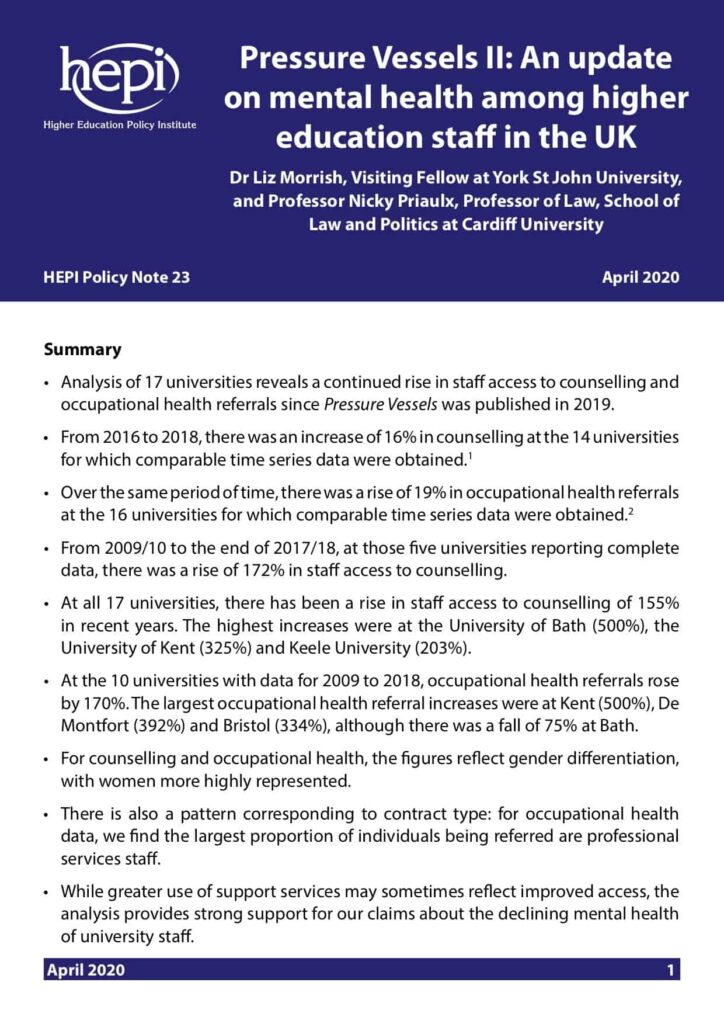Pressure Vessels II: An update on mental health among higher education staff in the UK
Summary
- Analysis of 17 universities reveals a continued rise in staff access to counselling and occupational health referrals since Pressure Vessels was published in 2019.
- From 2016 to 2018, there was an increase of 16% in counselling at the 14 universities for which comparable time series data were obtained.
- Over the same period of time, there was a rise of 19% in occupational health referrals at the 16 universities for which comparable time series data were obtained.
- From 2009/10 to the end of 2017/18, at those five universities reporting complete data, there was a rise of 172% in staff access to counselling.
- At all 17 universities, there has been a rise in staff access to counselling of 155% in recent years. The highest increases were at the University of Bath (500%), the University of Kent (325%) and Keele University (203%).
- At the 10 universities with data for 2009 to 2018, occupational health referrals rose by 170%. The largest occupational health referral increases were at Kent (500%), De Montfort (392%) and Bristol (334%), although there was a fall of 75% at Bath.
- For counselling and occupational health, the figures reflect gender differentiation, with women more highly represented.
- There is also a pattern corresponding to contract type: for occupational health data, we find the largest proportion of individuals being referred are professional services staff.
- While greater use of support services may sometimes reflect improved access, the analysis provides strong support for our claims about the declining mental health of university staff.





Comments
Add comment